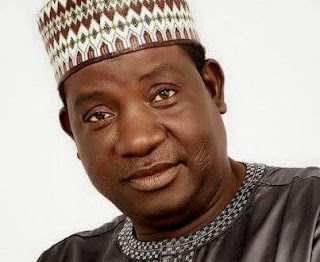Why Nigerians Are Beginning To Provide Their Own Brand Of Justice By Cheta Nwanze
You talk about vengeance. Is vengeance going to bring your son back to you or my boy to me? I forgo the vengeance on my son. But I have selfish reasons. My youngest son was forced to leave this country because of all this Solozzo business. Alright…now I have to make arrangements to bring him back here safely. But I’m a superstitious man, and if some unlucky accident should befall him, if he should get shot in the head by a police officer, or if he should hang himself in his jail cell, or if he’s struck by a bolt of lightning, then I’m going to blame some of the people in this room. And that, I do not forgive.” — Don Corleone
As a Nigerian, I provide my own water.
As a Nigerian, I provide my own power.
Other Nigerians like me, are beginning to provide their own justice.
The retreat of the Nigerian state will be complete when everyone decides that it is best for them to enforce their own interpretation of the law, personally.
On Monday, gunmen went into a largely Fulani community, Kikan, and killed up to forty-five people. Most painfully, the majority of those butchered by the marauders were women and children. This attack constitutes a genocide of the people of Kikan, and it was heartbreaking to hear the usual platitudes being spewed out by the government, with the deputy governor of Adamawa State, Marti Babale, “appealing for calm”, and promising that security personnel will be “deployed to secure the area”.
Will calm bring the dead back?
Will deploying security personnel bring the dead back?
Neither will. To be honest, nothing will. So what is the next best thing? The next best thing is to ensure that the crime is properly investigated, those who masterminded it are caught, tried, and punished.
Sadly, our government has over the years made a habit out of wringing its hands when things like this happen, leading to people taking the law into their hands.
In the next local government area, Demsa, there have been two attacks within the last fifteen months, on non-Fulani populations, by people accused to be Fulani. Complaints were made, and nothing was done. Is it too much of a stretch to imagine that someone, somewhere, has decided that he will exact his own brand of justice since the Nigerian state is seemingly incapable of doing that for him?
In a report released in February, my employer pointed out the following:
There are lessons to be learned from the conflict in Plateau, and how it entered hibernation. As a result of the Nigerian state’s inability to bring a satisfactory end to the crisis in that state, elements among the Tarok, who are found in Plateau, Nasarawa and Taraba, and the Eggon, who are found in Benue, Nasarawa and Kaduna states, formed militias, that have been responsible for multiple attacks on Fulani communities at least since 2013. There is evidence that the Tarok militia have collaborated with another ethnic militia, the Junkun, in Taraba state, to carry out reprisal attacks on Fulani communities, many of whom knew nothing of previous attacks.
Are we seeing a repeat of that process in Adamawa?
If Nigeria was not a joke of a country, by now all possible hands will be on deck to try and stop these tit-for-tat attacks. Even if we could not pretend that we want justice done, we could at least look at our own self-interests. These incidents have an economic fall-out, some of which I explained in my most recent OpEd for Financial Nigeria.
In 2012, Nigeria’s land borders with Niger and Cameroon were shut on the orders of then-President Goodluck Jonathan as part of a wider security plan to stem the tide of violent attacks by the Boko Haram insurgent group in some northern states, including Plateau. As a result, Plateau State experienced an unprecedented and little-reported egg-glut as supply chains to other northern states and the export market were disrupted for more than a month.
This led to significant economic losses in the state and higher prices in supply markets across the region, extending as far as Abuja, the nation’s capital. In response, the Jonah Jang administration approved the state purchase of eggs with a ₦30 million grant. Following the intervention, the egg market stabilised, preventing the collapse of a ₦10 billion poultry industry in the state. It was a textbook example of how insecurity can wreak real economic stress on livelihoods — one that we might be reprising with the ongoing pastoral conflicts.
Let us tell ourselves an uncomfortable truth, if there is no justice brought for the victims at Kikan, other Fulani people will take the quote that started this piece, blame someone, and then go and exact vengeance for themselves. This tit-for-tat has gone on for so long that we probably do not even know for sure anymore, how it all started.
Will those seeking vengeance be justified? In a way, yes, and it is sad. It is sad because the Nigerian state has refused to do its job and protect all of the people within it, people over whom it likes to claim authority.


Comments
Post a Comment